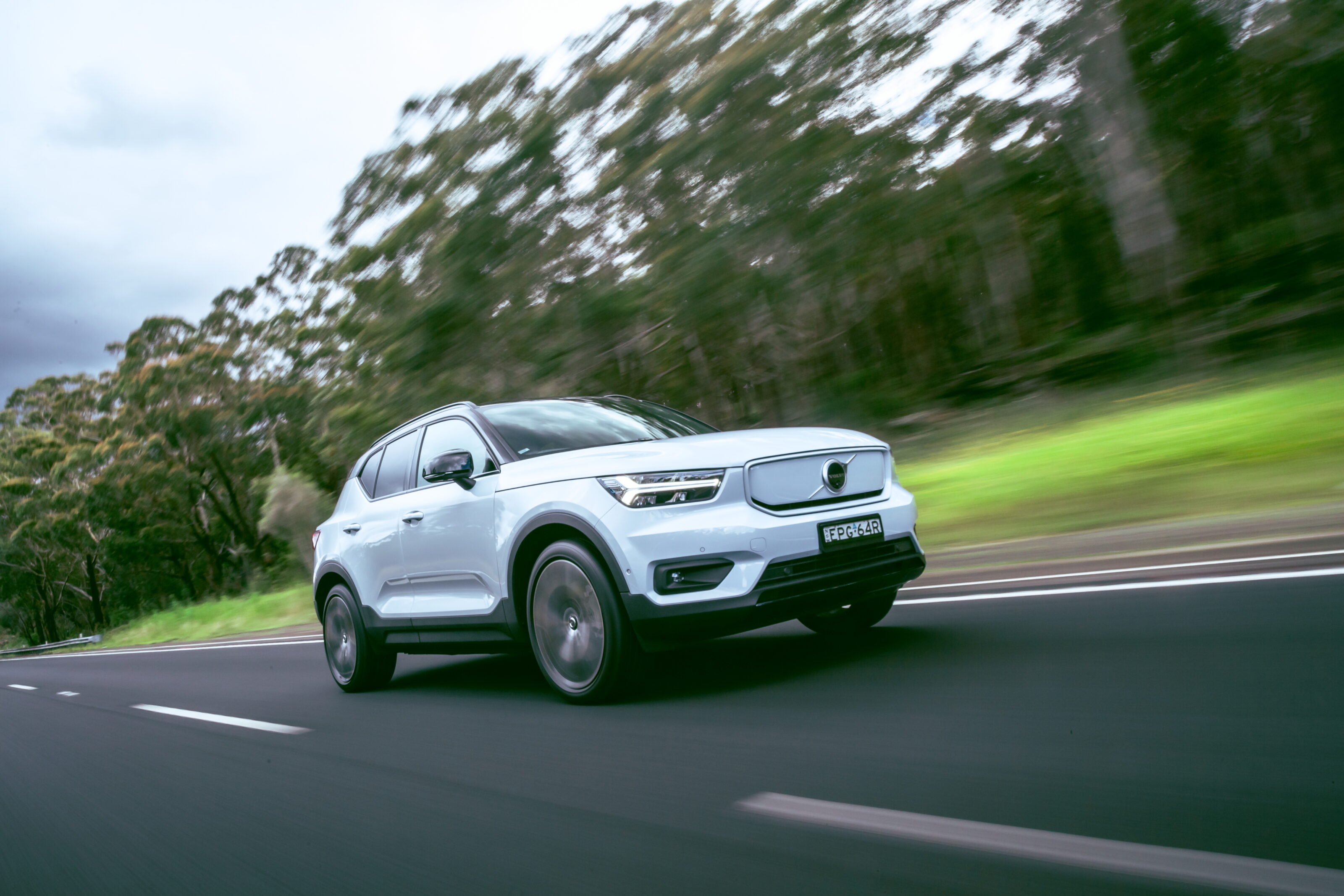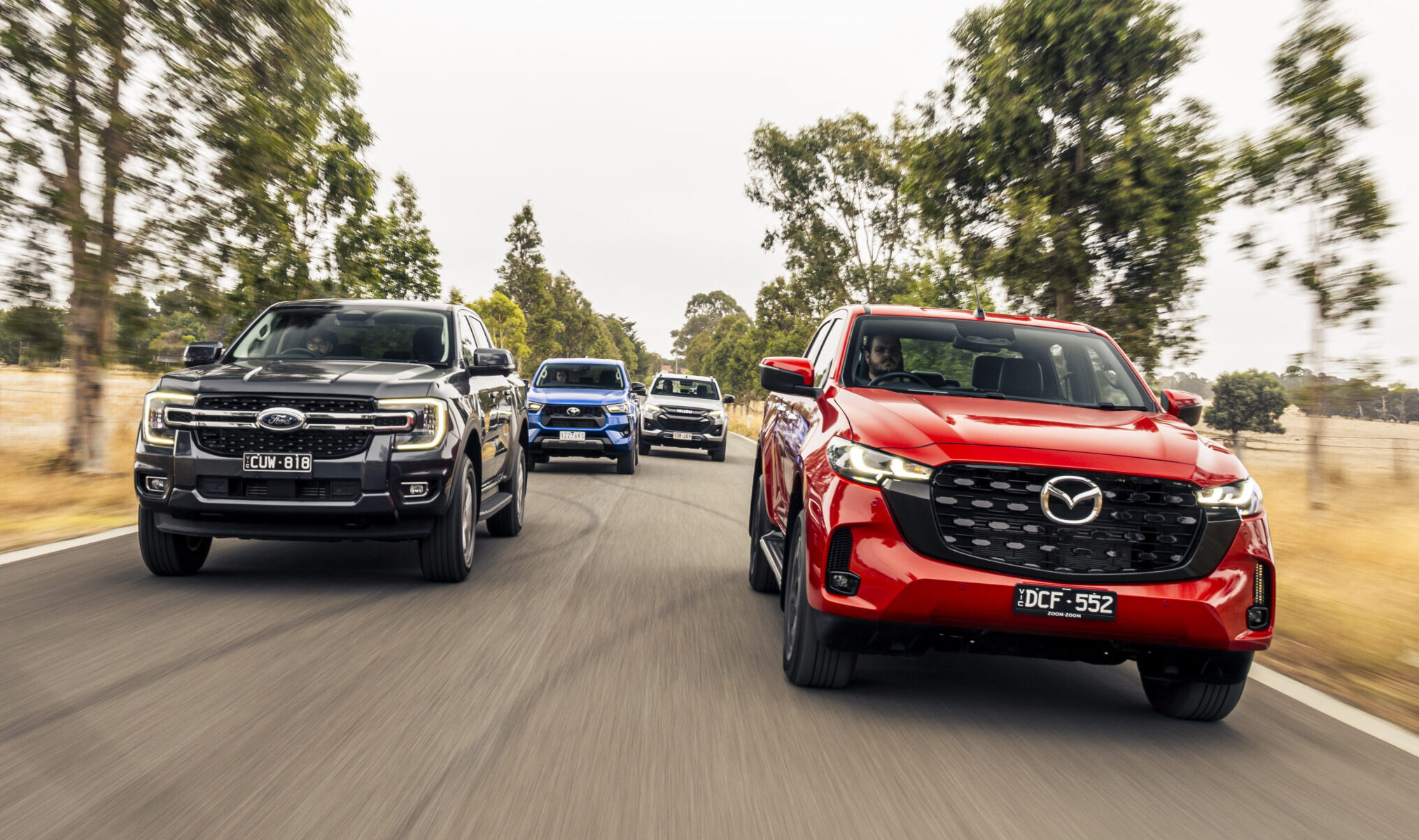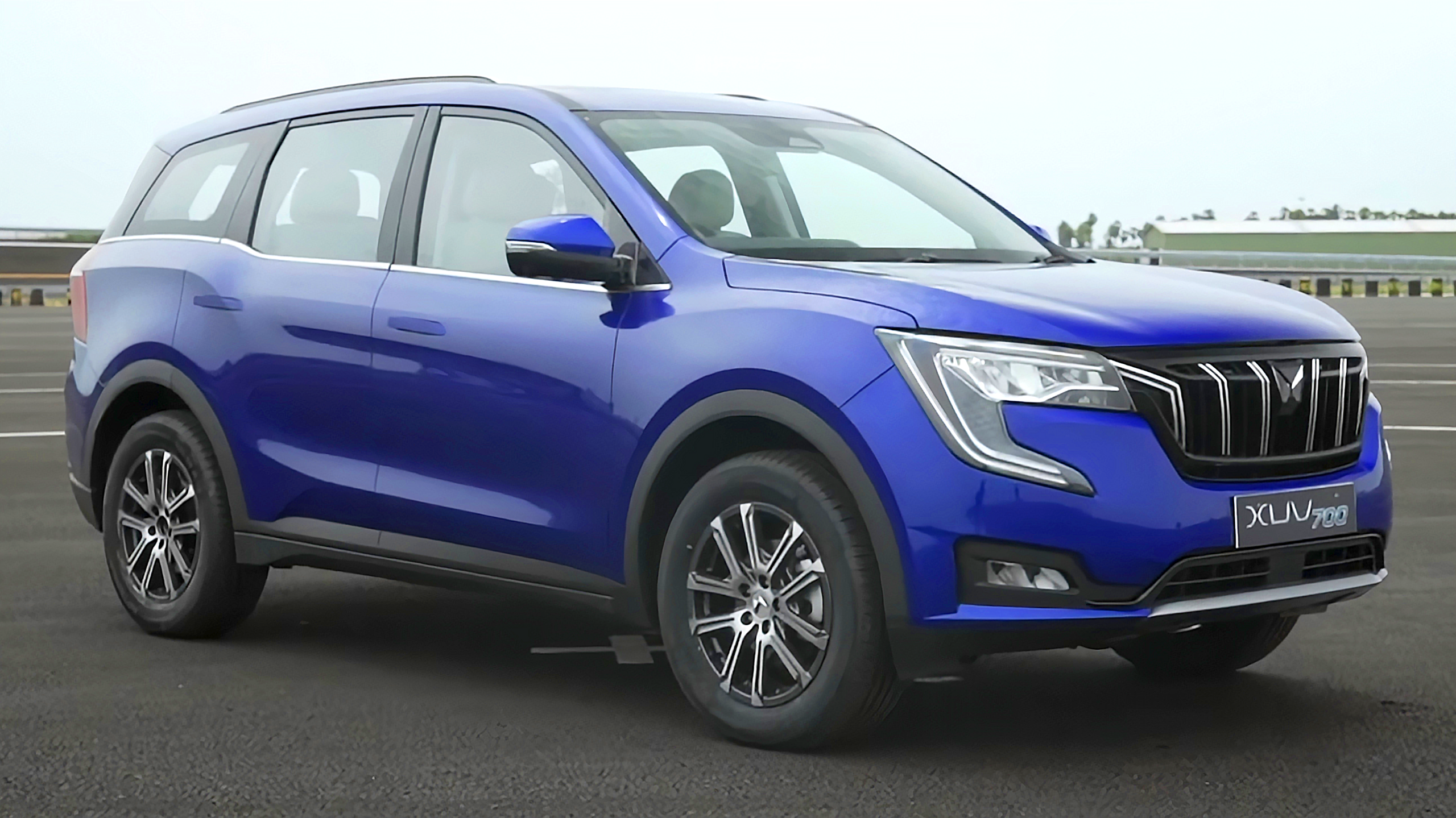Score breakdown
Things we like
- Stylish
- Quick
- Cool cabin
- Fun to drive
Not so much
- Harsh low-speed ride
- Unambitious digital dash
- Old version of Android Automotive
- No CarPlay (yet)
A good reputation is a hard-won thing. Brands of all types strive for years to build one and it can take one mistake to undo all the good work. Volvo spent half a century telling people they were the safest cars on the road and doubled down hard with sometimes deeply boring machines to prevent styling or speed from distracting you from The Mission. To be the safest car in the minds of the motoring public.
People who weren’t even born when this reputation was at its height during the 80s and 90s will sometimes screw up their faces when I tell them I’m driving a Volvo. “Really? Aren’t they a bit dull?” Well, not for the last couple of decades, no, but here we are.
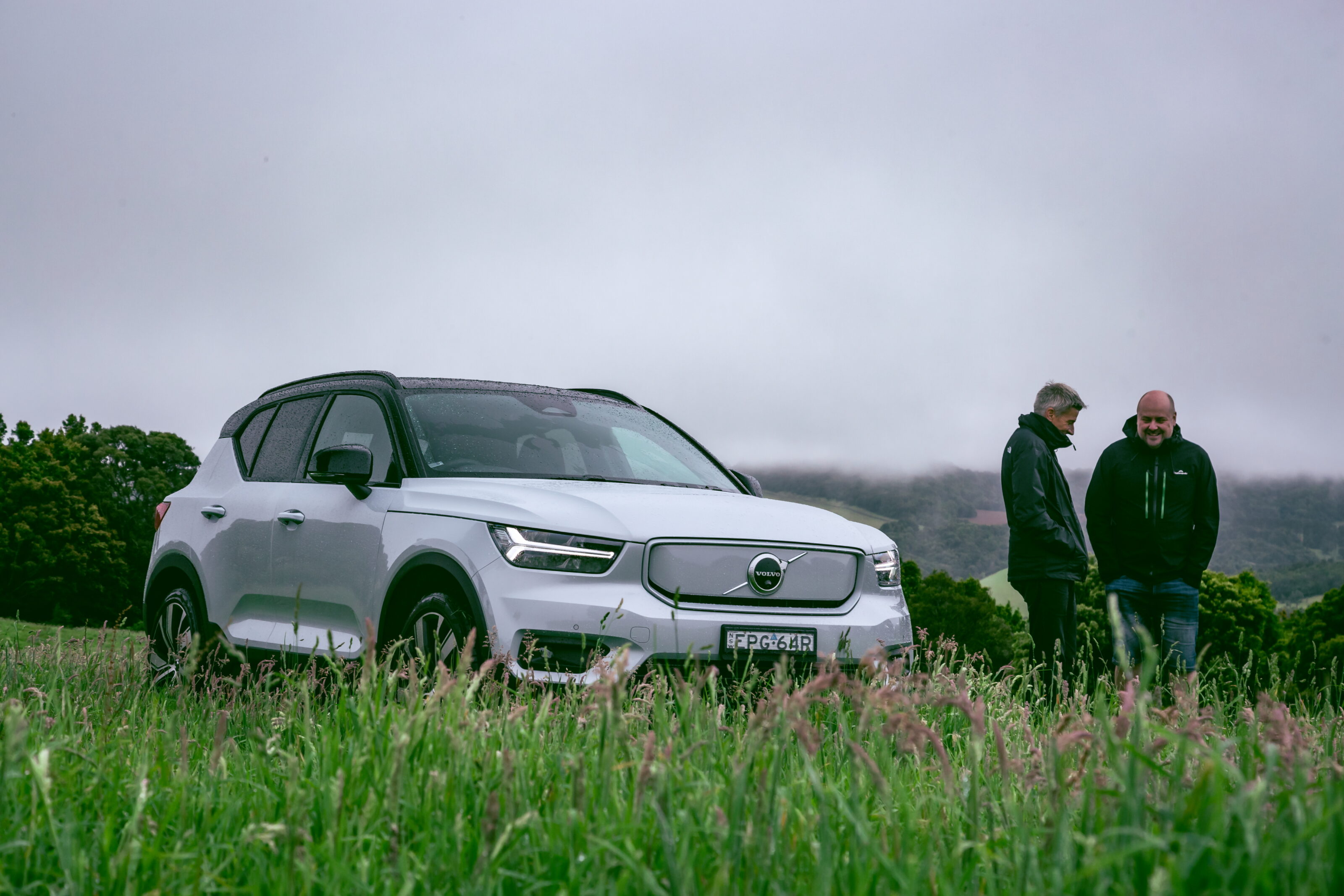
Despite being pretty much onboard with Volvo’s evolution from single-minded safety pioneer to producing style icons like the XC60 and XC90, even I was a little shocked when Gothenburg threw down the gauntlet and unveiled a fully electric XC40. With two motors, no less, and a pretty handy turn of speed to go with its funky exterior.
Pricing and Features
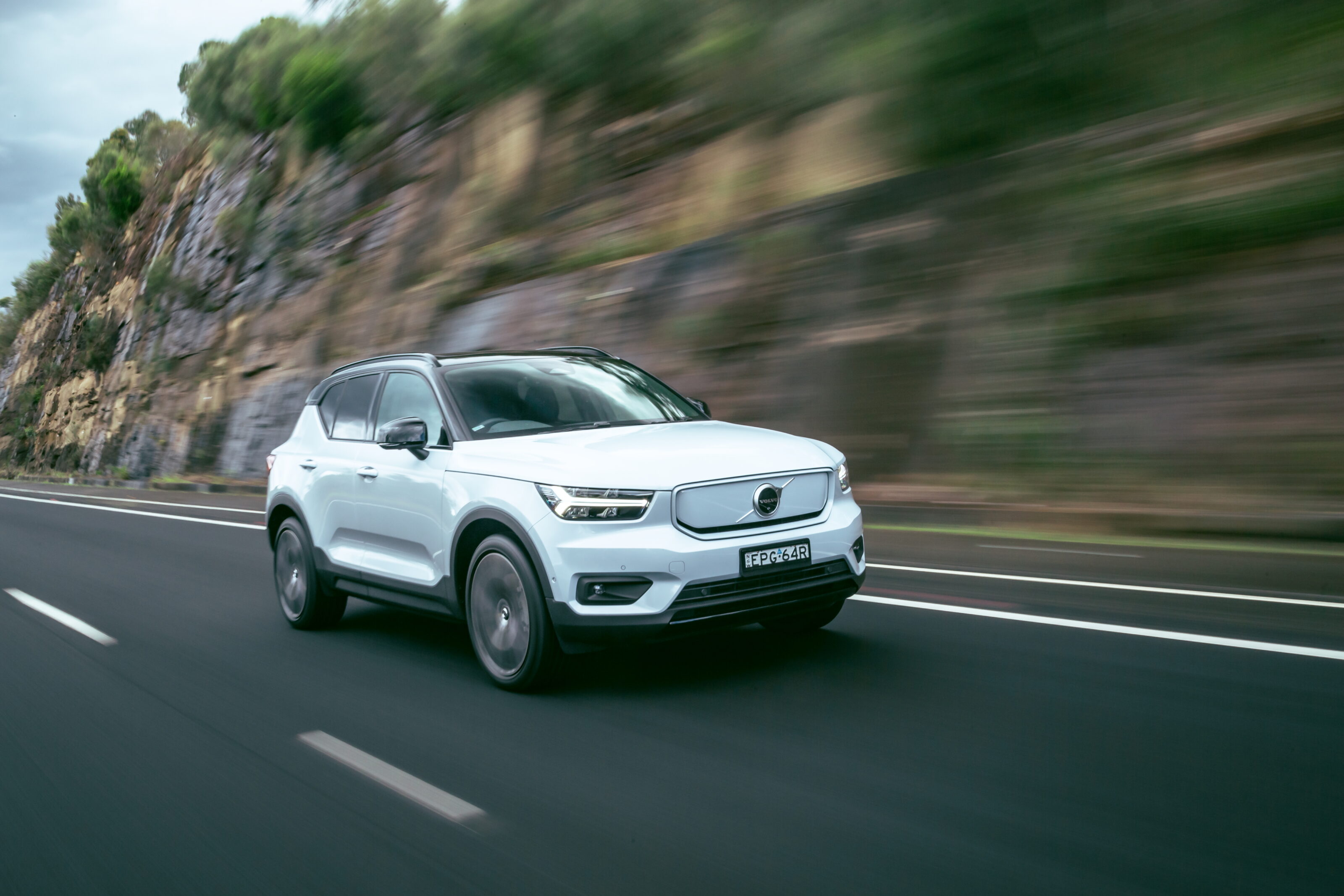
The 2021 Volvo XC40 Recharge Pure Electric is a bit of a long name. The “Pure” tells you it’s a battery EV and not a Recharge, which is a PHEV. It probably would have been quicker to call it the EXC40 but that’s a bit of a cliche, I guess. The XC40 starts at a reasonable $47,490 before on-road costs but it’s another $29,500 you’ll need to find before you can park an electric one in your driveway.
For $76,990 before on-road costs, Volvo delivers you a five-door SUV with 20-inch alloy wheels, panoramic sunroof, active LED headlights, auto wipers, keyless entry and start, powered tailgate, leather seats, dual-zone climate control, a 9.0-inch touchscreen in portrait mode, sat-nav, wireless charging, leather interior and power everything.
It’s a price that puts the kybosh on NSW, Victorian and South Australian EV incentives but you will escape stamp duty in NSW.
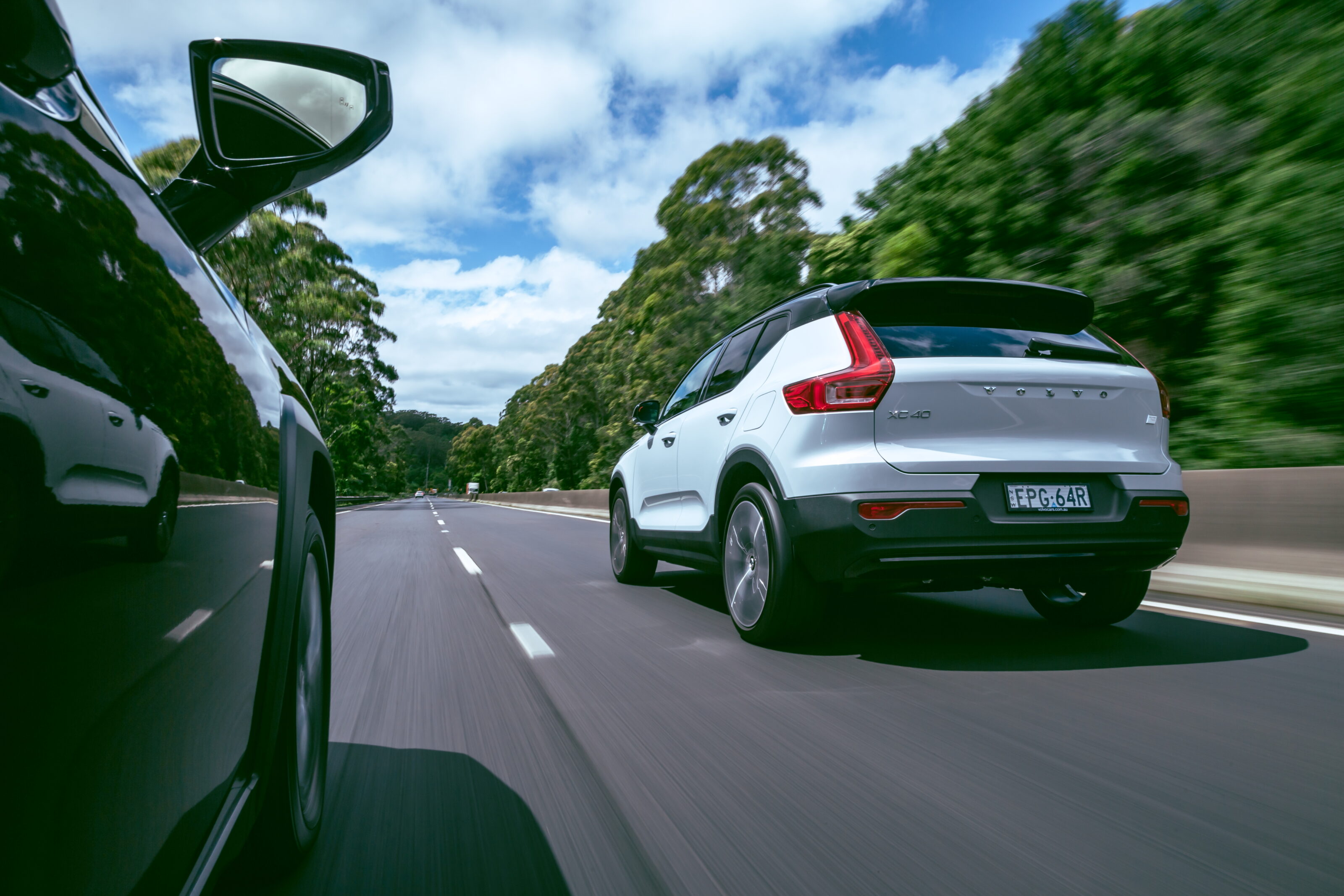
The portrait-oriented touchscreen features a fairly sparse version of Android Automotive that isn’t a patch on what you get from Volvo’s Polestar sister brand. It works well enough but if you’re not in the Google way of things, it’s a bit lonely. If you’re all signed up with Google, you can hook into your Google account and use voice commands (mobile coverage dependent) to do things.
It was maddeningly difficult to make the DAB+ digital radio interface was work, so I gave up after my first few tries. There is no Apple CarPlay (that’s coming, we’re told), which is a bit of an own goal given EV buyers tend to be tech-savvy folks. But there are 14 speakers to fill the cabin with sound, so once you’re hooked up with something, you’ll be happy.
The processing power behind the screen seems pretty poor, with the system often taking forever to load screens. It’s pretty underwhelming in its current state and is smacked out of the park by the Polestar 2’s screen.

True to its roots, there is a truckload of safety gear, with seven airbags, ABS, stability and traction controls, forward auto emergency braking (AEB), lane-keep assist, blind-spot monitoring, rear AEB, rear cross-traffic alert, front and rear parking sensors, forward collision warning and rear collision warning. You also get three top tether anchors and two sets of ISOFIX points for the kiddies.
ANCAP awarded the XC40 five stars in 2018, with a recent addition to the report including this electric version.
Despite being pretty much onboard with Volvo’s evolution, even I was a little shocked when Gothenburg unveiled a fully electric XC40
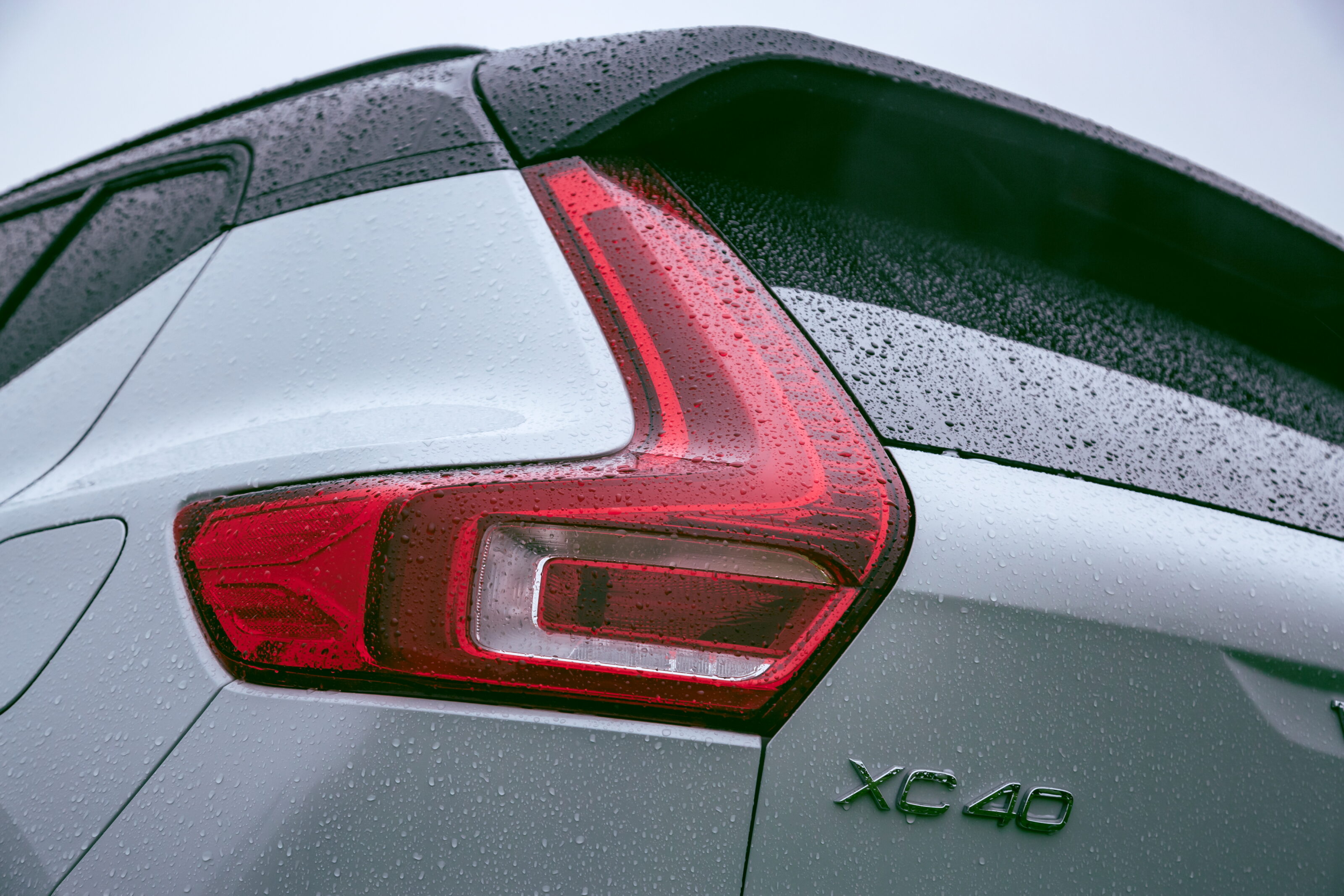
For the price Volvo is asking, there are a few electric cars in the mix, not least of which is a Volvo stablemate, the Polestar 2. More specifically, you’ll be able to get the dual-motor version with the Pilot Pack to match the safety package on the XC40. Mercedes will sell you an EQA, Hyundai an Ioniq 5 and you’re able to nab yourself a dual-motor Kia EV6 for a similar budget.
A Tesla Model 3 Long Range, while rather more sedan-ey is also not far off this kind of money so one imagines the Model Y will eventually arrive at a similar price. And fresh off the boat is the new Lexus UX300e. Sized at the other end of the scale for a compact SUV, it’s a couple of grand cheaper and includes a Chargefox subscription but ditches a lot of space and is only front-wheel drive.
Comfort and Space
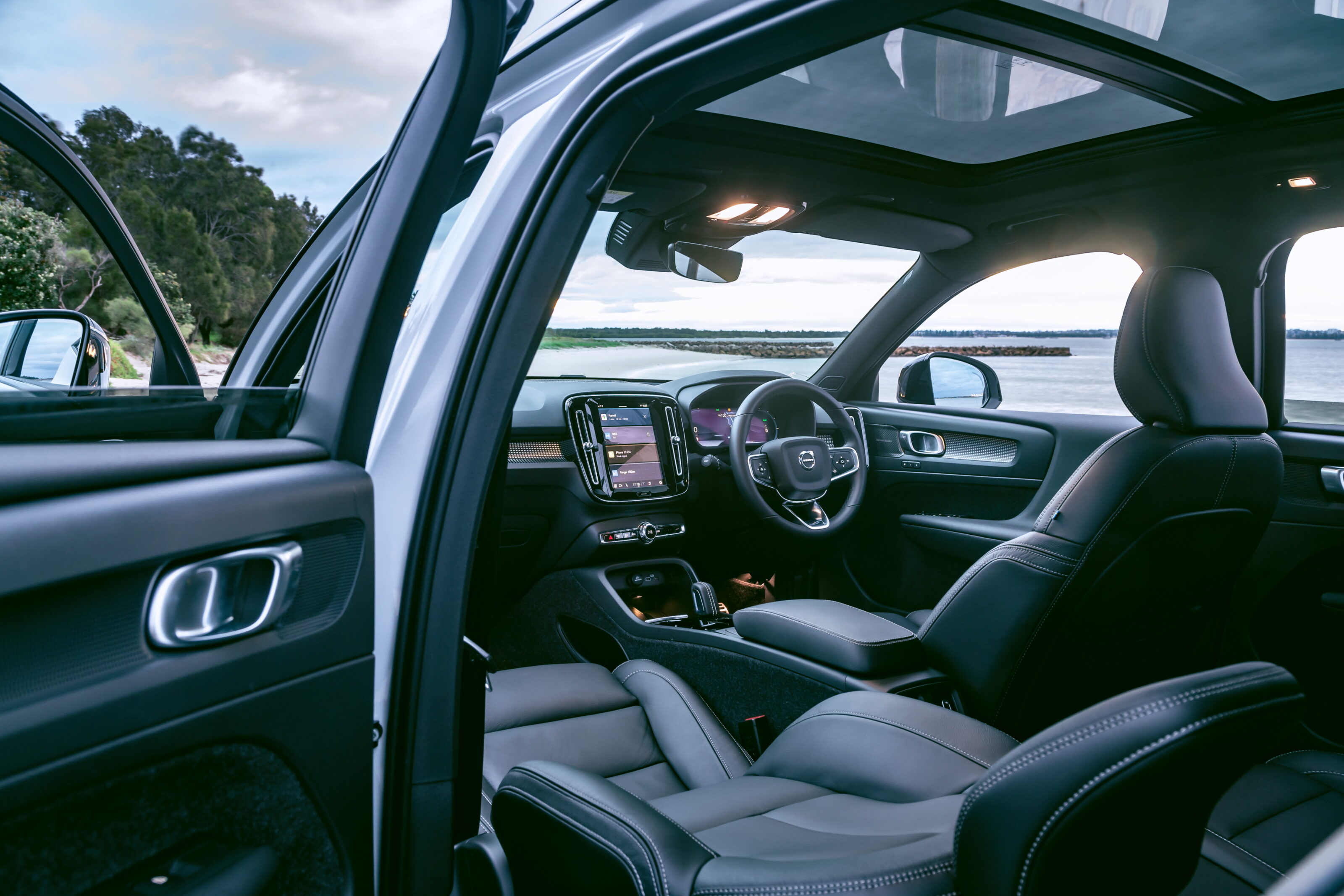
The short answer is that this is an XC40 with a smaller boot. If you’re an XC40 owner or fan, that’s probably all you need to know. If not, I have some opinions for you.
Let’s start with the smaller boot. The electric XC40 has 418 litres of space (VDA), down from 460 litres, a loss of 42 litres. That isn’t a huge amount and my famously terrible maths tells me it’s a bit less than a 10 per cent loss.
As luck would have it, there’s more storage under the bonnet, with a handy 31 litres cheerfully swallowed up by the portable charge cable if that’s where you want to keep it. The other option is under the boot floor, where it fits neatly but is tricky to get to if you’re on a road trip with a boot full of stuff.
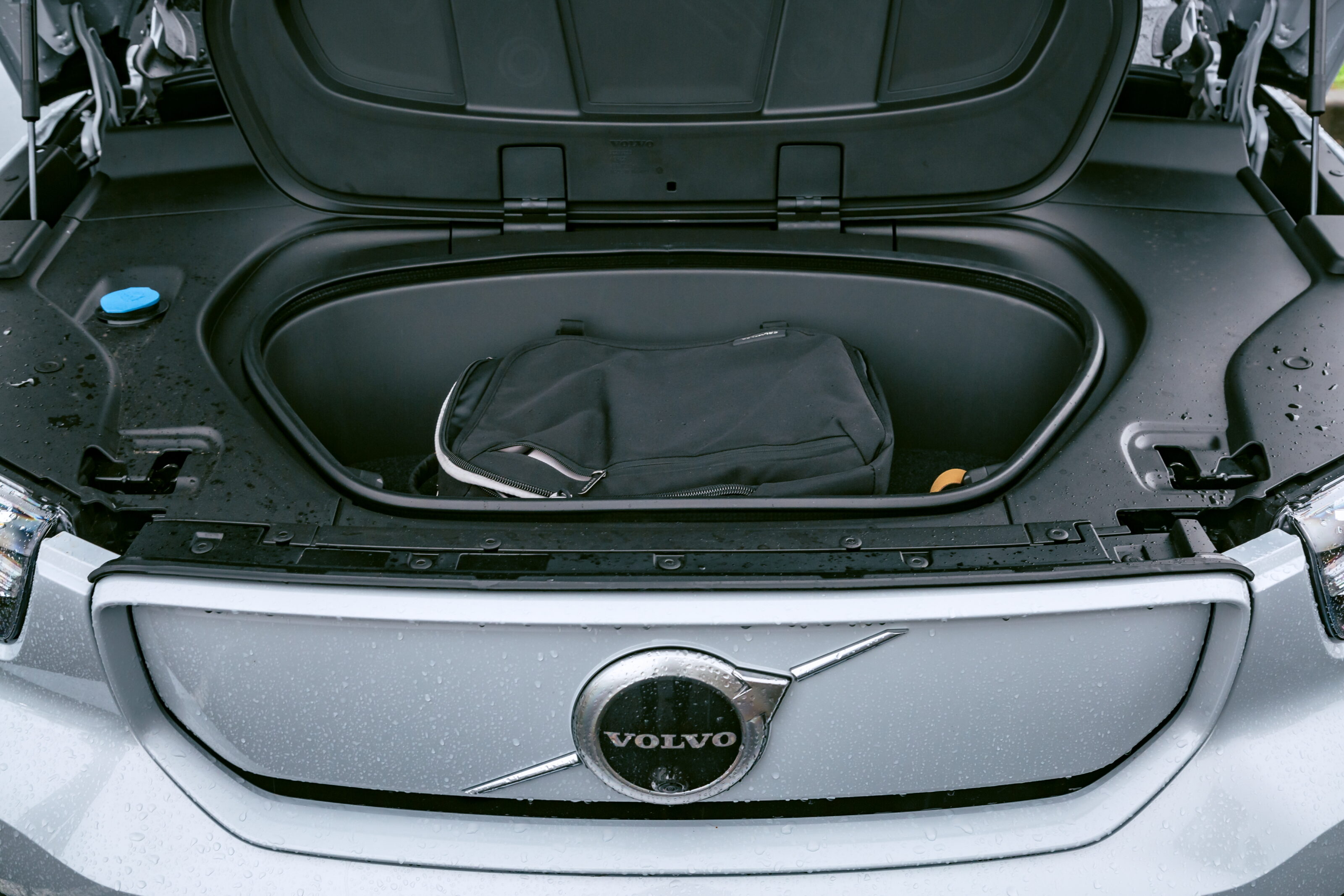
Fold the rear seats down and the space rises to 1373 litres. You do also lose the spare tyre and you get a puncture repair kit instead.
Moving to the rear seat, it’s a great space if you’re anywhere up to 180cm tall. I had a good five to ten centimetres clear above me and that’s with the sunroof. The seat is a bit shallow under the thighs but should be comfortable for all but the longest drives. The armrest has two good-size cup holders and bottles will fit in each door. You also get rear air vents.
Volvo front seats are uncommonly comfortable. The leather feels nice and there are some nice touches like the patterned inserts and lovely metallic finishes
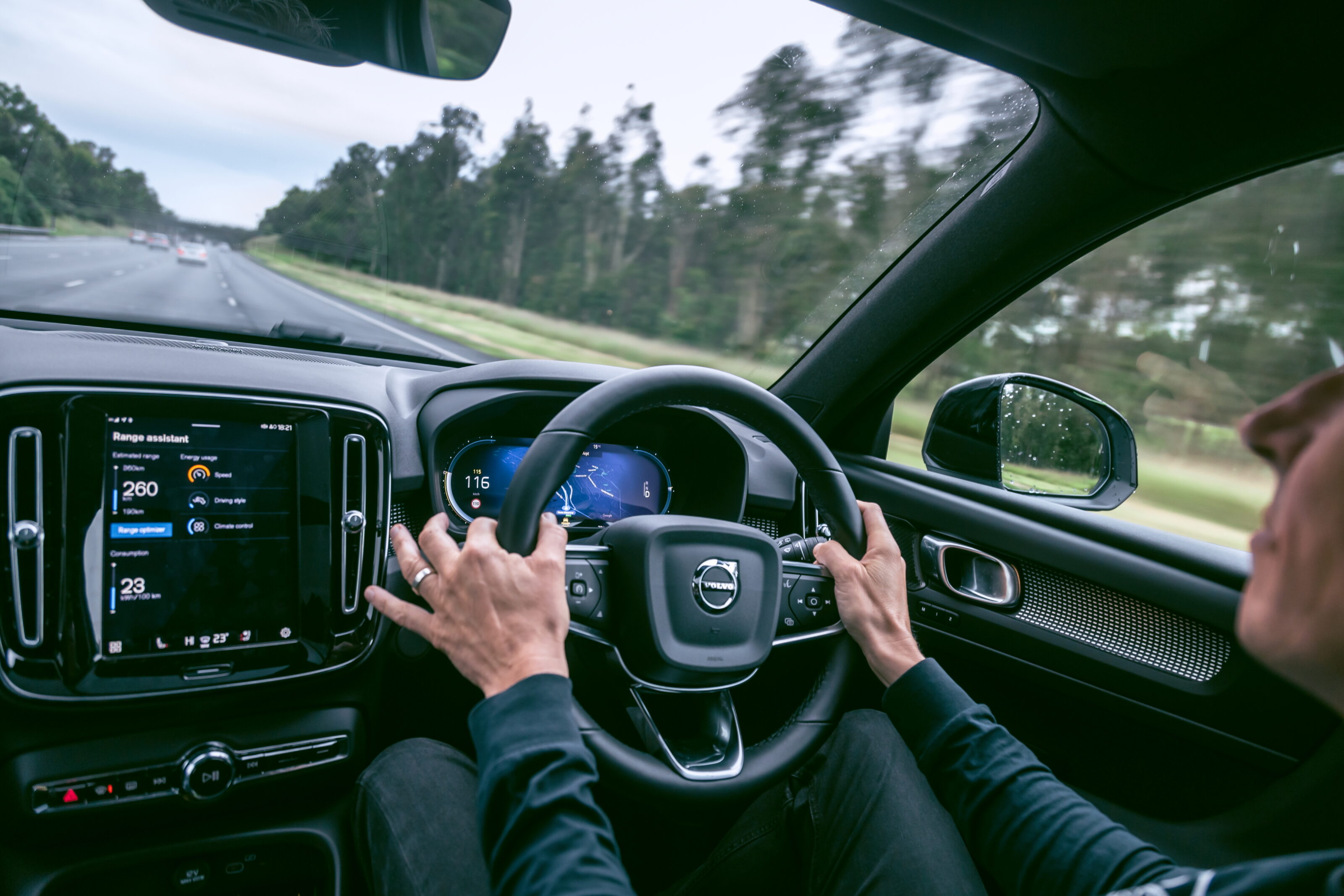
The transmission tunnel is hefty, so the middle seat is for occasional use by all but the shortest of adults.
Volvo front seats are uncommonly comfortable and the ones in this XC40 have plenty of adjustment too. The leather throughout feels nice enough and there are some nice touches like the patterned inserts across the dash, the vertically-arranged air vents and the lovely metallic finishes. The touchscreen doesn’t overpower the space either.
Battery and Charging
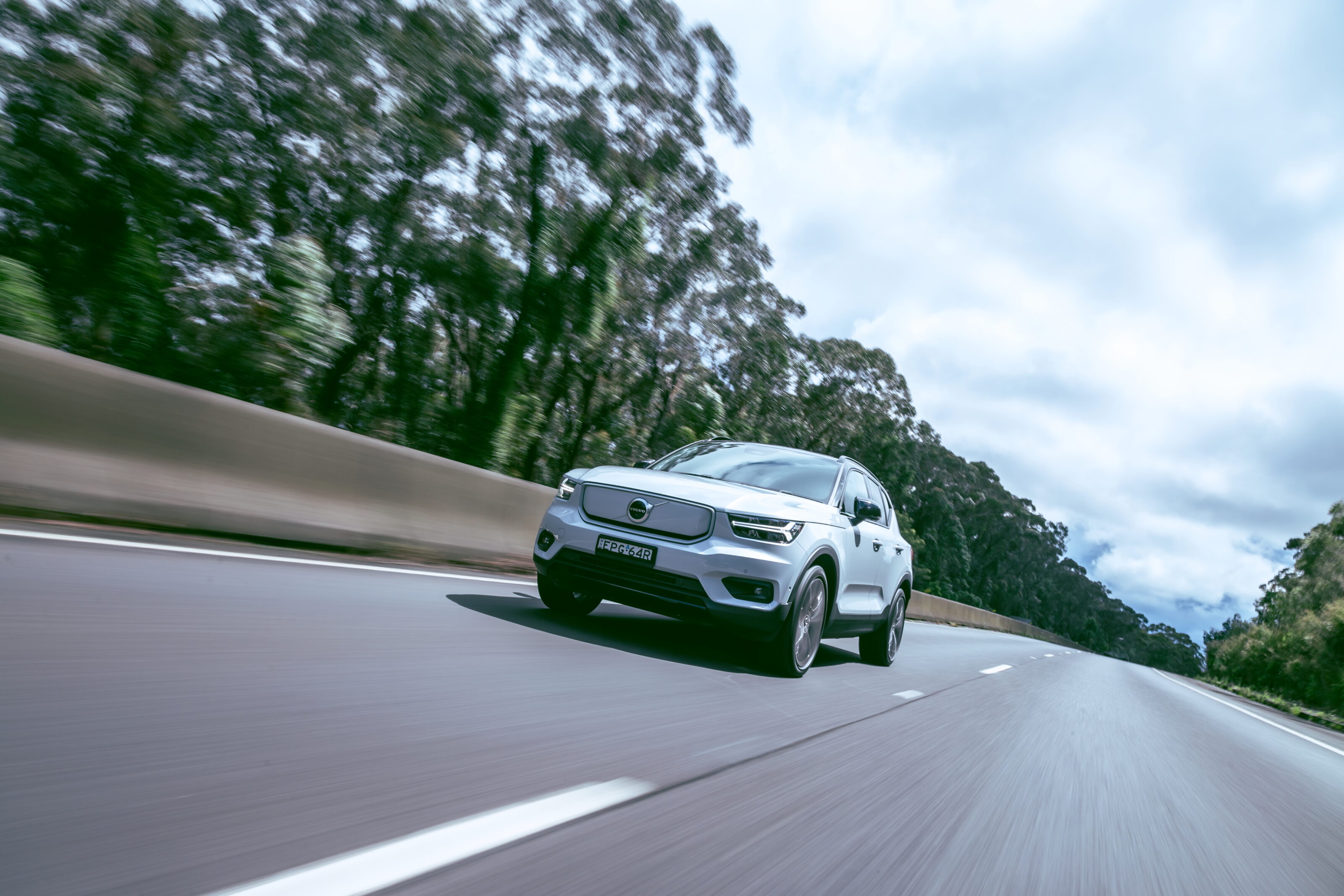
Packed in under the floor is a fairly hefty 78kWh battery pack, with 75kWh of usable capacity. A 400-volt system, it will cop 150kW charging from the right kind of charger, however the times we tried it on a 350kW charger, it didn’t want to go above 75kW, which was a little disappointing.
Charging from dead will take 22 hours on a standard wall socket and as little as 40 minutes at full tilt on a 150kW unit. The more common 50kW chargers will give you a full charge in about two hours – as with all EVs the last 20 per cent takes a lot longer.
The XC40 uses a CCS2 type charger, so when you’re checking for charging stations, make sure they have one of those rather than CHAdeMO.
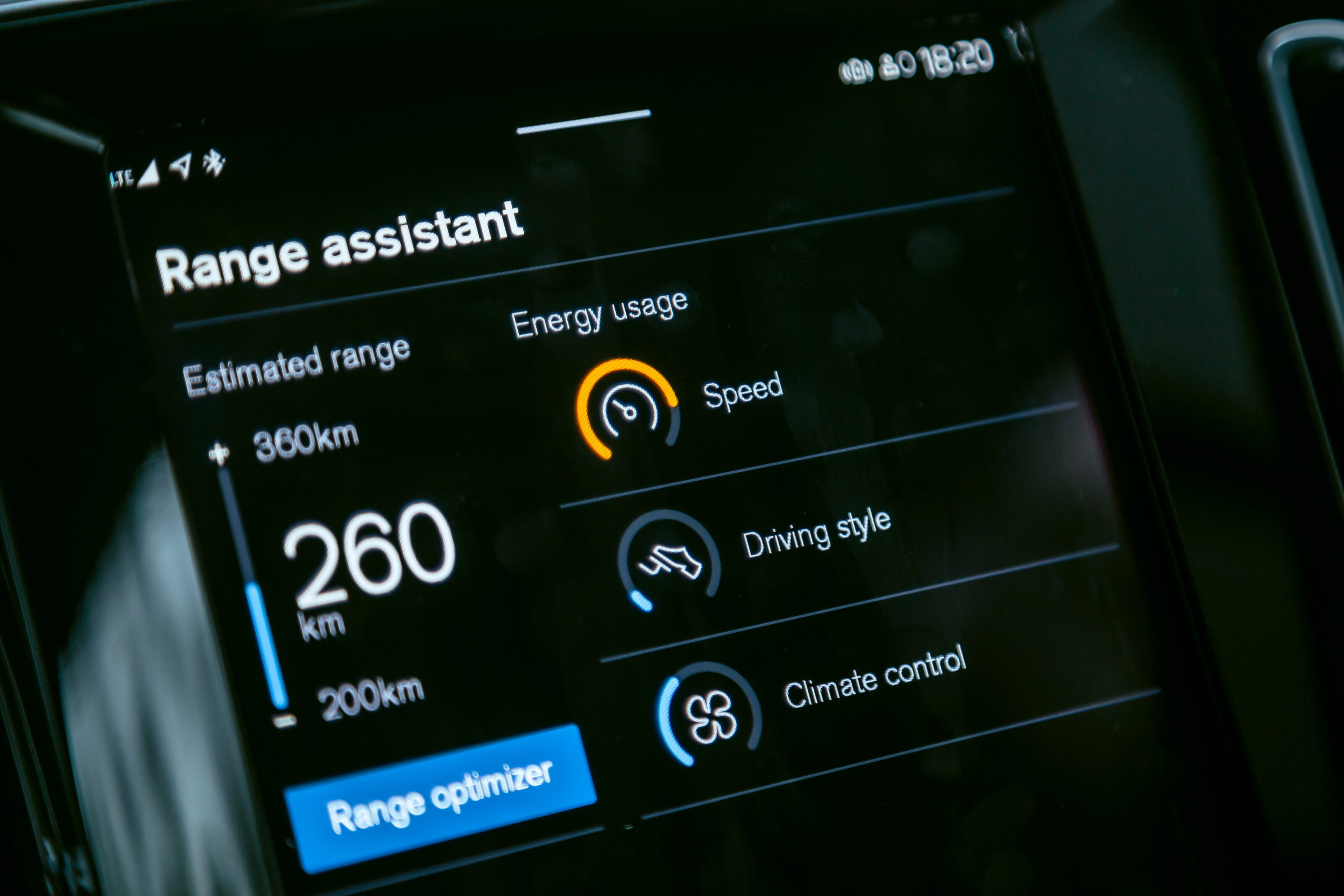
Officially, the maximum claimed ADR range is 450km while the generally more accurate WLTP range is 418km. Neither figure is bad but on the road, it’s a different story as I managed to extract around 300km per full charge.
That said, the official 25kWh/100km consumption rate on the combined cycle felt pessimistic for most of the time I drove it as I averaged around 21kWh/100km, including regular use of 80km/h roads and, er, the throttle pedal. You’ll get more range in one-pedal driving around town, less if you spend a lot of time on the freeway.
On the Road
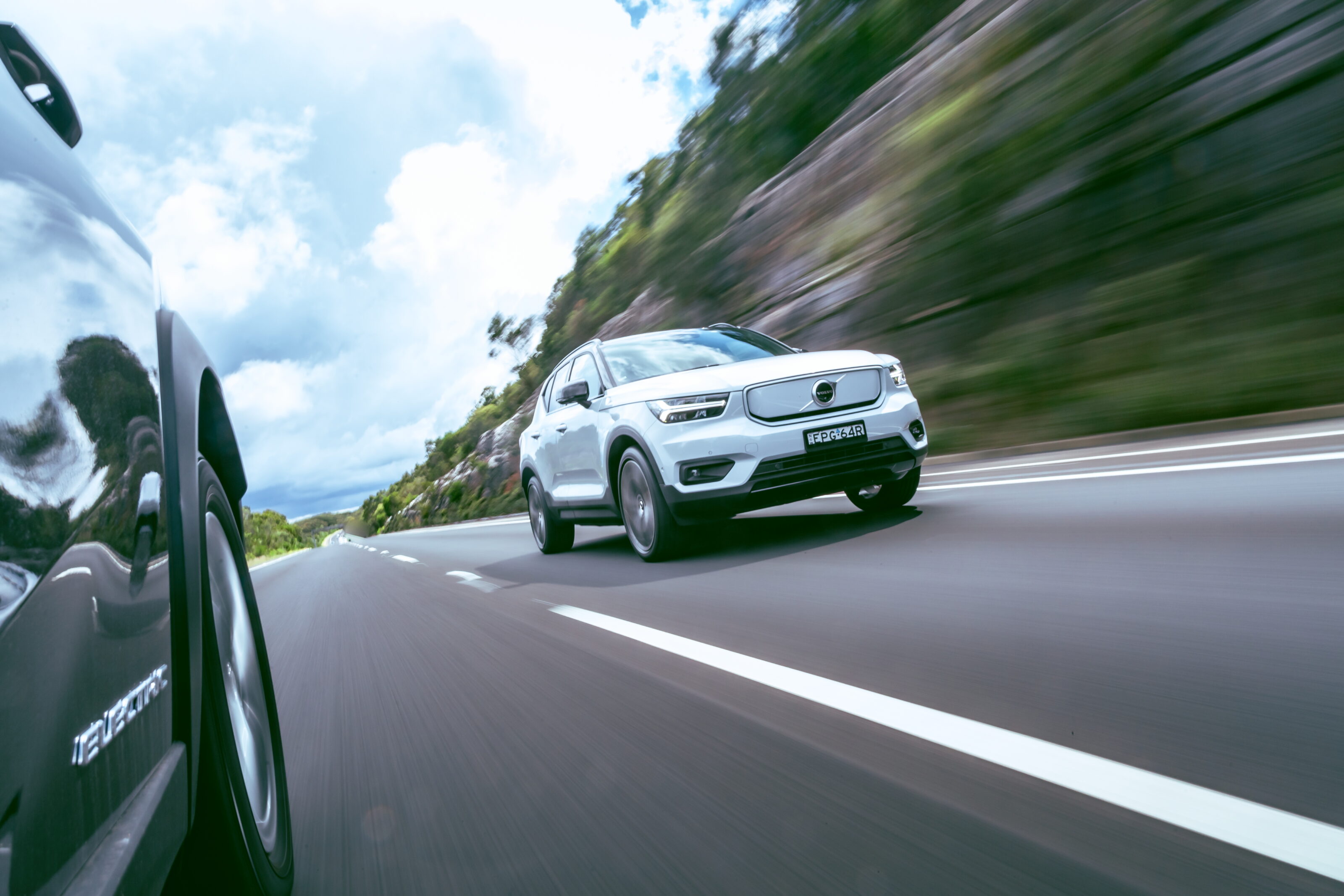
The XC40 rides on Volvo’s CMA platform, which means it’s not an EV-from-the-ground up but nor is it a let’s-ram-some-EV-tech-into-this-ICE-platform either – it was always meant to have electrification. There are still compromises, of course. The transmission tunnel is still there, but full of batteries and the boot, as we’ve seen, loses a bit of space.
It’s a hefty machine at 2158kg, but the pair of 150kW motors mounted fore and aft are perfectly capable of moving the bulk, assisted by 660Nm of torque. The 0-100km/h sprint is dispatched in 4.9 seconds, which is not messing about. Not Tesla Plaid quick, no, but you’re looking at three times the price for that kind of performance.
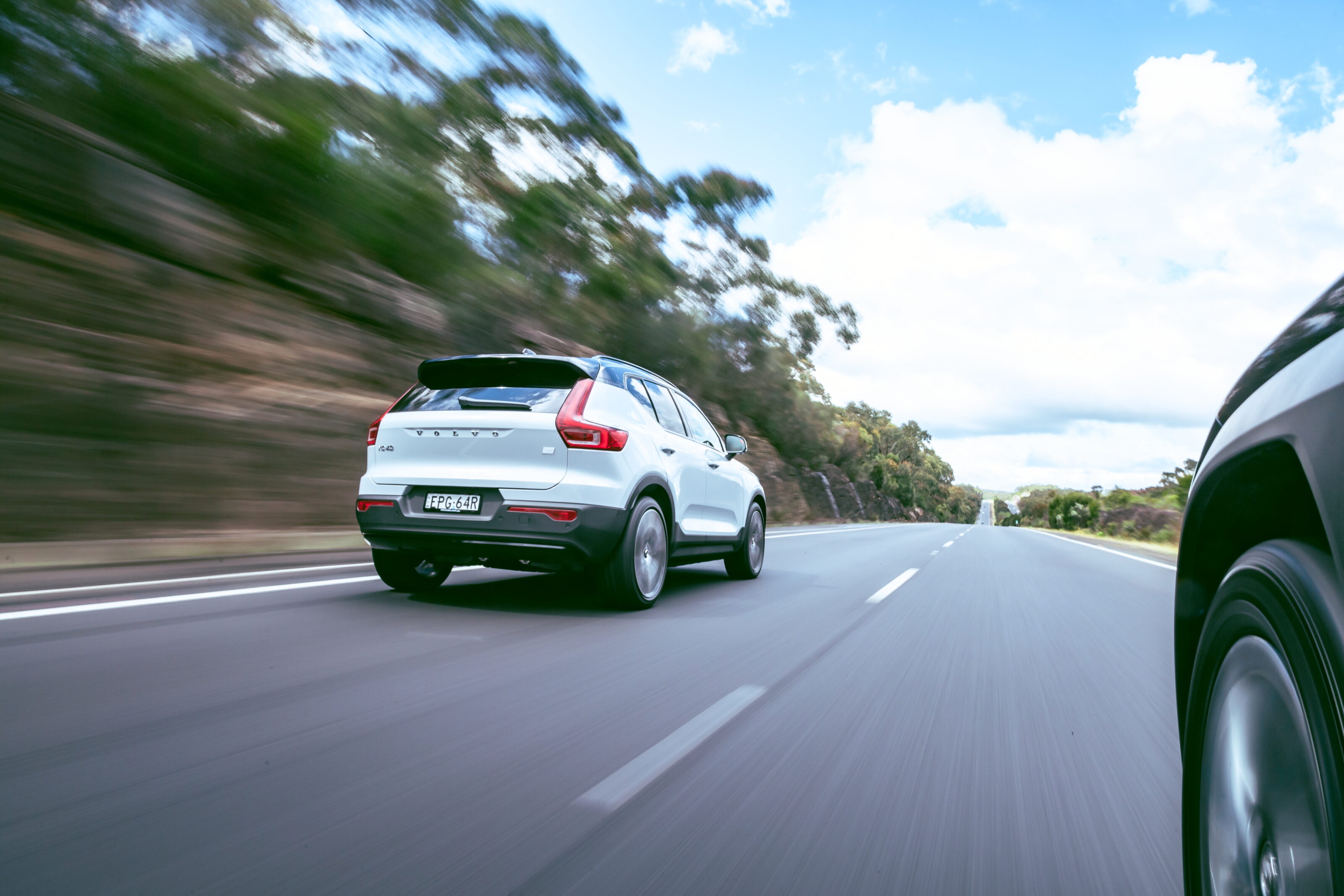
Volvo doesn’t bother with drive modes; it’s all in the throttle. My wife drove it and complained it was a bit slow but my word, it is not slow. You’ve just got to use the pedal with an assertive right foot to access some quite vivid acceleration, both off the mark and when you’re rolling. Given its higher ride height over its Polestar 2 counterpart, it initially feels a little wayward under full throttle.
But I soon discovered that’s because my brain wasn’t accurately estimating just how quickly it would go when I thumped the pedal to the floor.
The 0-100km/h sprint is dispatched in 4.9 seconds, which is not messing about. Not Tesla Plaid quick, but you’re looking at three times the price for that kind of performance
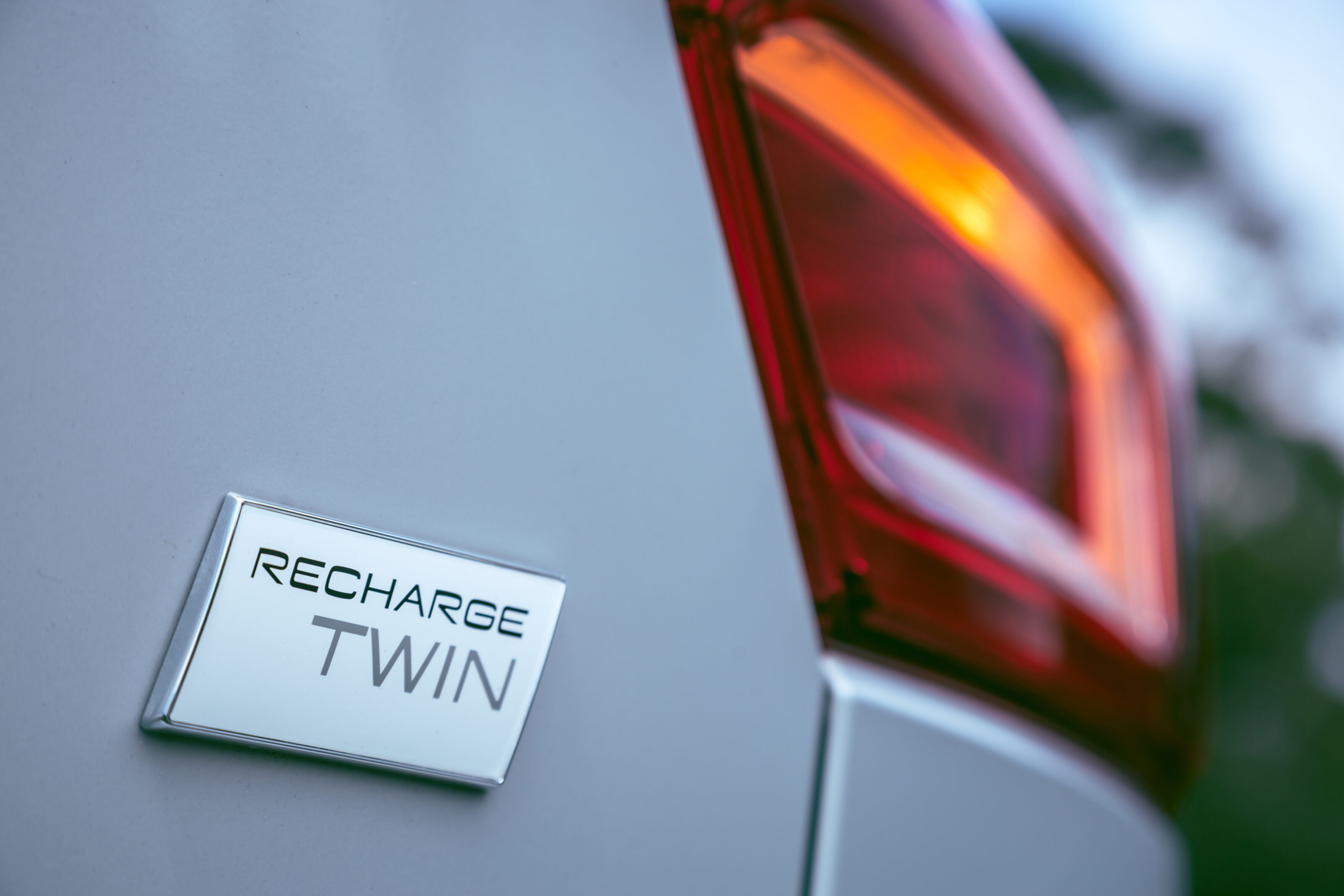
The vast majority of XC40s are city-based, so an EV version is a fairly interesting proposition. The ICE versions are notorious for a slightly brittle low-speed ride and so it is with the electric. The extra weight certainly knocks the edge off the pothole thumps and crunches but rubber speed bumps are still a bit unpleasant. The rest of the time it just feels pleasantly firm, which is likely down to the size of the wheels rather than the MacPherson strut fronts and multi-link rear end.
Higher speeds deliver a really composed ride, though, with little in the way of wind or transmission noise. It’s a good thing to travel around in and the suspension’s firmness soon feels right. It’s a shame that the tyres are a bit noisy, but there’s a reason for that, which I’ll come to shortly.
The only problem with higher speeds is the one-pedal driving mode. Set to either on or off, it’s quite arresting when you’re whistling along at 90km/h and you lift off, it’s like being behind Max Verstappen pretending to let you by cleanly. The car lurches into what feels like moderately heavy braking so it’s best to have that switched off once you get out of the city.
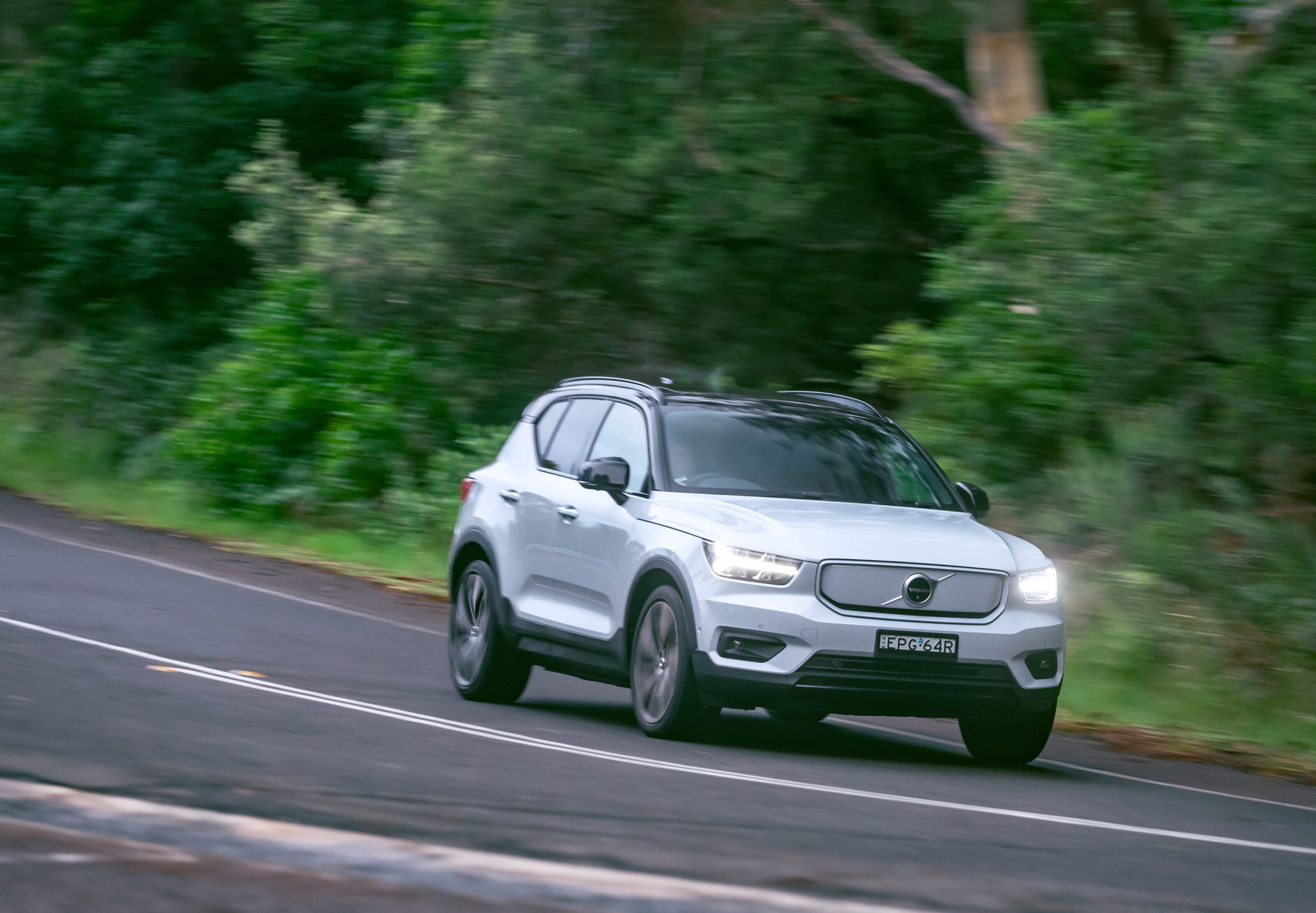
In lower-speed traffic, it works a lot better and has the added benefit of charging the battery with kinetic energy and keeping you off the artificial-feeling brake pedal. It feels artificial because it is, given the software is constantly deciding whether to simulate engine braking or use actual physical braking. The transition is quite good between them, though, and the disc brakes are big and strong.
Into corners, it’s reasonably convincing and out of them galactically quick given there is 660Nm of torque available. But you wouldn’t want to get too excited. Traction from the all-wheel-drive system is mightily impressive – couldn’t even get the tyres to scrabble in the dry from a standstill with a stomped throttle – and the Pirelli P-Zero rubber is a nice touch. They’ve even got VOL stamped on them, so the Swedes got involved to make a set just right for the XC40. I’m just pleased they’re not slippy low rolling resistance tyres. It does mean they’re noisy at speed, though
Ownership

Volvo offers its five-year/unlimited-kilometre factory warranty on the electric XC40. An eight-year warranty applies to the battery and the drive system is “sealed for life” meaning there’s not much to do at service time.
This explains why the service intervals are a very generous two years/30,000km and at this stage, servicing is free for the first three years/100,000km and covers wear and tyre like wiper blades, pads and rotors, which is pretty good going.
Unlike some other EVs, you do not get a subscription to a charging network.
Volvo has a mobile app that lets you keep an eye on how charging is going, setting up a temperature for you to step into a warm/cool car (delete where appropriate for your season or location) and no doubt more functions will creep their way in with over-the-air updates.
VERDICT
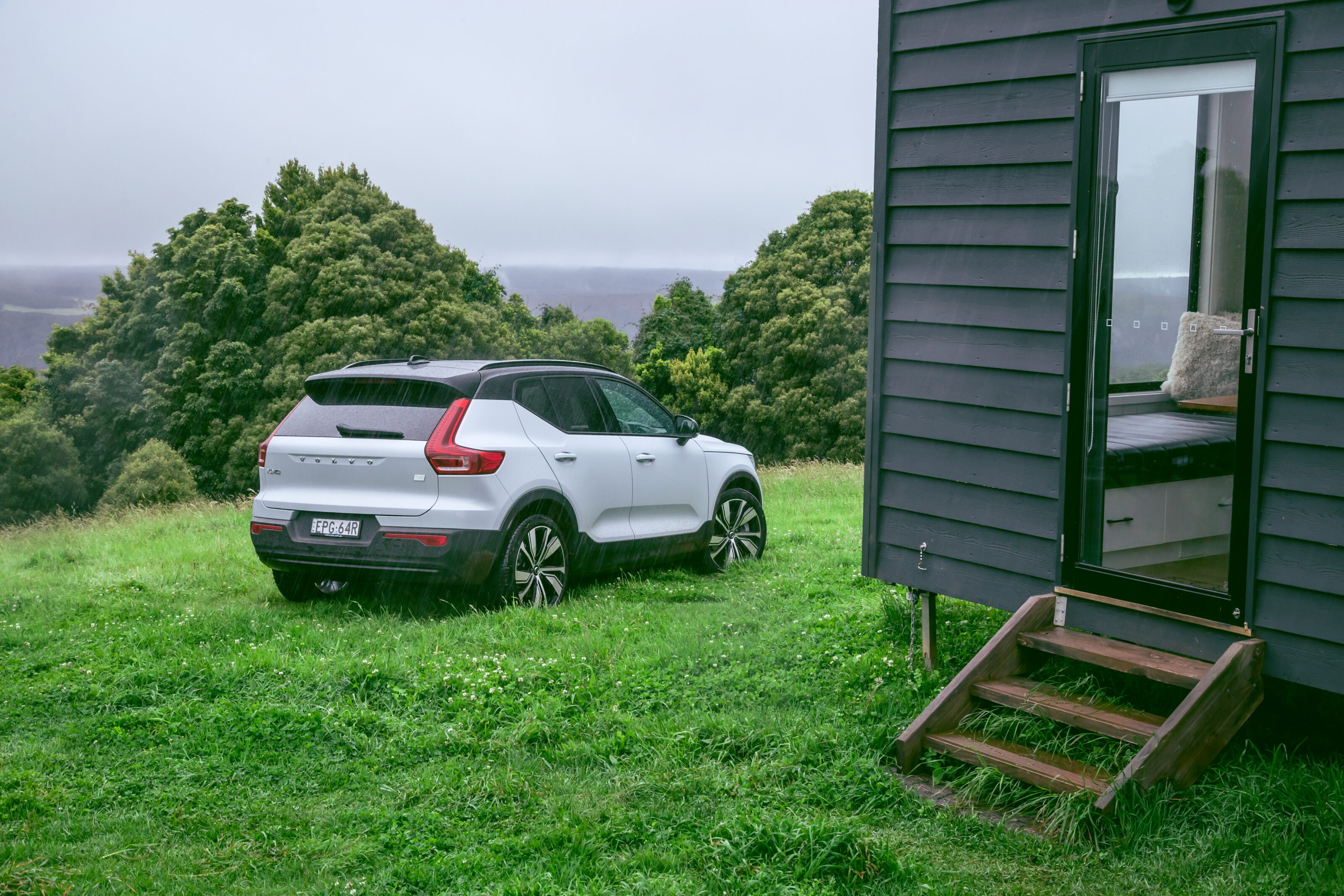
The XC40 Recharge Pure Electric is a long name for a compact SUV, but it deserves it. It’s an excellent car made even better by electrification. While its range might be limited to a comfortable real-world 300km, it more than makes up for that with terrific power, a comfortable and easy driving experience and an otherwise familiar form factor.
While the media system could be better and I’d like to see a lot more information about the state of the battery and its range, which hopefully over-the-air updates will sort out. It’s part of an increasingly competitive segment that is filling with big brands making big statements.
Volvo almost slipped into it quietly and without telling anyone, which is as cool as the car itself.
2021 Volvo XC40 Recharge Pure Electric specifications
| Body: | Five-door compact SUV |
|---|---|
| Drive: | AWD |
| Engine: | Twin motor electric |
| Transmission: | Single-speed reduction gear |
| Power: | 300kW @ 0rpm |
| Torque: | 660Nm @ 0rpm |
| Battery: | 78kWh / 75kWh usable |
| Claimed range: | 418km (WLTP), 450km (ADR) |
| 0-100km/h: | 4.9 sec (claimed) |
| Energy consumption: | 25.5kWh/100km (combined) |
| Weight: | 2158kg |
| Suspension: | MacPherson strut front/multi-link rear |
| L/W/H: | 4425mm/1910mm/1651mm |
| Wheelbase: | 2702mm |
| Brakes: | 345mm ventilated disc front / 340mm solid disc rear |
| Tyres: | 245/45 R20 Pirelli P-Zero |
| Wheels: | 20-inch alloy wheels (no spare) |
| Price: | $76,990 plus on-road costs |
Score breakdown
Things we like
- Stylish
- Quick
- Cool cabin
- Fun to drive
Not so much
- Harsh low-speed ride
- Unambitious digital dash
- Old version of Android Automotive
- No CarPlay (yet)


